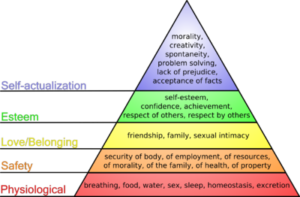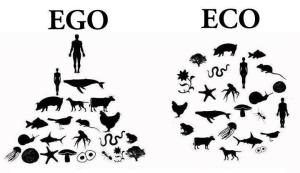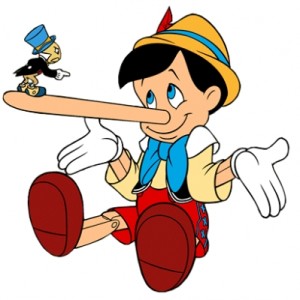 This post is by Eric Anderson
This post is by Eric Anderson
What’s the first thing you think about when you hear the word club? Does it bring to mind a night out dancing with your friends? A day behind a fancy gate wining and dining between rounds of golf? Perhaps getting together with friends to play chess, or cards, watching birds, or exploring nature? Or, does it bring to mind something entirely different — such as bashing your enemy over the head?
The comedian George Carlin wryly observed that the elite are “… one big club, and you’re not in it.” Were Carlin to better understand the nature of clubs he might have more accurately stated “it’s one big club, and you’re not swinging it.” Carlin’s predecessor Groucho Marx understood, once stating “I got a good mind to join a club and beat you over the head with it.” What the elite have always known, and the left tragically fails to understand, is that “club” means power.
Originally used in the violent sense, the word club originated c. 1200 from the old Norse klubbe, as in cudgel. The word’s transition from connotations of violence, to ease, is fascinating. As any wildlife biologist knows, humans are by far the most violent species. Most animals displace aggression by use of elaborate dominance rituals, that while serving to measure the species’ fitness to reproduce, or defend territory, rarely result in death.
And while humans are the least skilled at this adaptive ritual capacity, forms of it have evolved. Sports are one such outlet. And so it appears that the paradoxical use of the word as both a means of violence, and ease, evolved from this same capacity. The club, as cudgel, was used in early gatherings of individuals to play games and sports. See: the golf club. From there, it’s easy to see how the differentiation to such wildly different connotations evolved. The modern usage of the word club seems to have emerged as a means to symbolize displaced social aggression.
Clubs — in the groups of people wielding power sense of the word — serve another important function. They diffuse responsibility. As stated by Frederick Douglas, “Power concedes nothing without a demand.” And, in the same speech “Who would be free, themselves must strike the blow.” Douglas is saying, in no uncertain terms, that when demands go unmet the only recourse is to clubs. But, using clubs is messy business. A demand, made by one moral human alone, is no demand at all.
This is because most humans are moral, and it viscerally pains us to hurt another human being. Not so with the sociopathic elite, who employ their clubs of attack dogs to beat justice bloody, while standing one-thousand feet removed from violence in their towers. Clubs allow diffusion of the pain it causes a moral human to hurt another. But, unlike the elite who can afford to pay attack dogs, among the poor “Who would be free, themselves must strike the blow.”
Today the elite — and their traditionally conservative constituents — appear to understand this relationship far better than their traditional leftist enemies. For example, try strolling into Davos and see if you’re not met by a human attack dog with a badge who will revel in taking a club to your head. “Good dog! Here’s your promotion. Now, heel. Sit. Good dog.” So too, the elite’s conservative constituency understand that “club” means the power to smash your enemy over the head. Witness a sample of right-wing clubs having no qualms about using the club to achieve power: the Ku Klux Clan, NRA, Oath Keepers, Proud Boys, Stormfront, Constitutional Sheriff’s Association, Three Percent, Redoubt Movement, Patriot Front, Family Research Council, Atomwaffen Division, and virtually every fundamentalist religious organization one chooses to identify.
The list on the left is not nearly so extensive. Witness: Antifa. Wait, WHAT? How is this working out for leftists? Not so well.
There was a time in the U.S. when the left did understand the relationship between clubs and power. We called those clubs Unions. The reasons behind the erosion of Union power are numerous, but this discussion must include the fact that their vision was not large enough. Union vision was limited to jobs. Those clubs failed to threaten to use the club on those elite who sold America’s soul to the foreign bidder offering the lowest wages. They failed to use their power on politicians and capitalists. Then, when the jobs were gone, so too were the clubs. The left was left powerless, and remains so. In America, the left go clubbing to dance. The right goes clubbing for dominance.
One billion theoretical leftists using the tools of their elite internet masters, remain alone in practice – myself included. As it stands, we remain like those described by Thoreau, as “a thousand hacking at the branches of evil to one who is striking at the root.” Leftists desperately need new clubs, on the ground, that are willing to use clubs to effectively strike at the roots of power, or the perpetual slide down the slope of fascism will continue. It’s past time all those identifying as leftists join clubs, and courageously set about beating the elite over the head with them.
My next installment will discuss a model to begin rebuilding the grassroots clubs necessary to take power.

 Affect: noun (a-fekt): a set of observable manifestations of a subjectively experienced emotion.
Affect: noun (a-fekt): a set of observable manifestations of a subjectively experienced emotion. Don’t part with your illusions: when they are gone you may still exist, but you have ceased to live. — Mark Twain
Don’t part with your illusions: when they are gone you may still exist, but you have ceased to live. — Mark Twain I’ve thought a lot about immigration in my time, and confess, I’ve never thought very highly of it. Which, of late, seems to be an extremely unpopular position among liberals. But it’s not that I’m anti-immigrant, per se. It’s that I’m militantly pro-place. I sympathize with my place.
I’ve thought a lot about immigration in my time, and confess, I’ve never thought very highly of it. Which, of late, seems to be an extremely unpopular position among liberals. But it’s not that I’m anti-immigrant, per se. It’s that I’m militantly pro-place. I sympathize with my place.